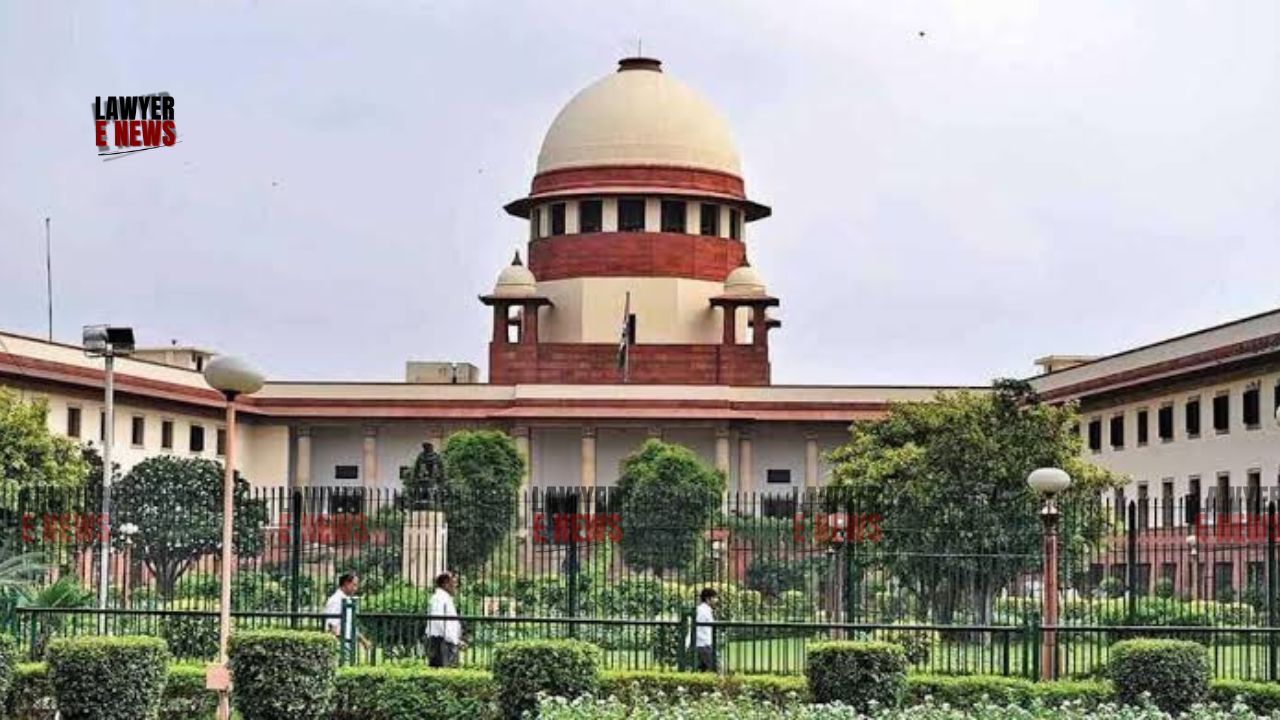-
by Admin
16 February 2026 1:47 PM



“Where detailed source information prima facie discloses commission of a cognizable offence, preliminary enquiry may be avoided” — In a significant ruling Supreme Court of India set aside the Karnataka High Court’s decision that had quashed an FIR in a corruption case for alleged absence of a preliminary enquiry. The Court ruled that “a preliminary enquiry, though desirable in corruption cases, is not a legal mandate”, especially where a detailed and reasoned source report already exists on record.
Allowing the State’s appeal, the bench comprising Justices Sudhanshu Dhulia and K. Vinod Chandran held that the FIR registered under Sections 13(1)(b) and 13(2) of the Prevention of Corruption Act, 1988 against the respondent — a BESCOM Executive Engineer — was legally valid as per Section 17 of the PC Act.
High Court Quashed FIR for Want of Application of Mind by Superintendent of Police
The controversy arose from an FIR registered on 04.12.2023 against Sri Channakeshava H.D., alleging accumulation of disproportionate assets worth over ₹6.64 crores, based on a detailed source report prepared by the Deputy Superintendent of Police and submitted to the Superintendent of Police (SP) of Karnataka Lokayukta.
The Karnataka High Court, however, quashed the proceedings on 25.04.2024, holding that although the SP had formally authorized the investigation under the second proviso to Section 17 of the PC Act, he had not conducted or ensured any preliminary enquiry, and thus failed to apply his mind.
Rejecting this view, the apex court observed: “Section 17 of the PC Act does not speak of a preliminary enquiry. It was only in Lalita Kumari v. State of UP (2014) that a preliminary enquiry was held to be desirable in corruption cases — not mandatory.”
“Detailed Source Report Serves the Purpose of Preliminary Enquiry”: SC
The Supreme Court underscored that the second proviso to Section 17 requires only that the investigation into disproportionate assets cases must be initiated on the order of a police officer not below the rank of a Superintendent of Police — not necessarily following a preliminary enquiry.
In this case, the SP had passed the authorization after considering a detailed source report dated 05.10.2023, which, the Court noted, amounted to a functional preliminary enquiry. The report provided comprehensive details of the accused officer’s alleged assets, service history, benami transactions, and suggested further raids.
The Court observed: “Based on this source report, which is nothing but a kind of preliminary enquiry, an order was passed by the SP directing the registration of an FIR.”
“We are of the considered opinion that the High Court ought not to have quashed the FIR in the present case.”
Reference to Lalita Kumari and T.N. Sudhakar Reddy: Preliminary Enquiry Is Not a Right of the Accused
Referring to its earlier Constitution Bench decision in Lalita Kumari v. Govt. of U.P., the Court reiterated that corruption cases fall under a category “where preliminary enquiry may be made”, but this is not mandatory in every instance.
Reinforcing this position, the Court relied on its recent decision in State of Karnataka v. T.N. Sudhakar Reddy (2025 SCC OnLine SC 382): “The use of the term ‘may be made’ as noted in Lalita Kumari underscores that conducting such an inquiry is discretionary in nature and not a mandatory obligation.”
It further quoted: “The preliminary inquiry is not mandatory in every case under the PC Act… Where a superior officer is in seisin of a source information report which is both detailed and well-reasoned… the preliminary inquiry may be avoided.”
The bench categorically rejected the argument that the accused public servant must be heard before the FIR is filed, citing CBI v. Thommandru Hannah Vijayalakshmi (2021) 18 SCC 135: “There is no inherent right of a public servant to be heard at this stage.”
“Detailed Allegations of DA Worth ₹6.64 Crores Sufficient to Proceed Without Formal Enquiry”
The Court noted that the source report pegged the accused officer’s disproportionate wealth during the check period (1998–2023) at ₹6,64,67,000, nearly 92.54% more than his known sources of income, spread across multiple properties and suspected benami holdings.
In view of the compelling material and lawful authorization by the SP, the Court held: “Preliminary enquiry was not mandated in the present case, considering that detailed information was already there before the SP in the form of the source report.”
Concluding the judgment, the Supreme Court allowed the appeal, stating: “Accordingly, we allow this appeal and the impugned order dated 25.04.2024 is hereby set aside.”
The FIR and investigation against Sri Channakeshava H.D. shall now proceed in accordance with law.
Date of Decision: April 8, 2025
